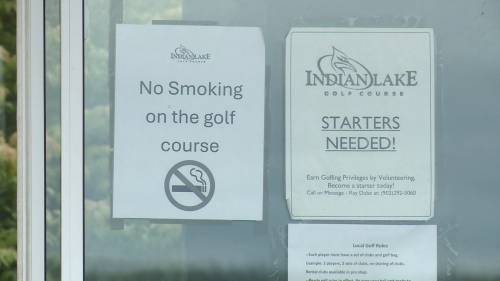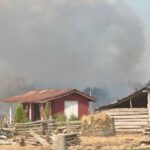In an unprecedented move reflecting heightened environmental vigilance, golf courses across Nova Scotia have implemented comprehensive smoking bans as the province grapples with escalating wildfire risks. The ban, which took effect earlier this month, prohibits smoking and vaping anywhere on course premises, marking a significant shift in recreational policy driven by climate concerns.
“We’ve never had to take such stringent measures before,” explains James Harrington, Director of the Nova Scotia Golf Association. “But with forest fire danger ratings at extreme levels and the memory of last year’s devastating blazes still fresh, we simply cannot afford to take chances with something as preventable as smoking-related ignitions.”
The decision comes after Nova Scotia weathered one of its most destructive wildfire seasons in 2023, with multiple blazes threatening communities and forcing thousands of evacuations. Weather data indicates the province is experiencing increasingly dry conditions this spring, creating a tinderbox scenario across many regions where golf courses are nestled within wooded areas.
At Granite Springs Golf Club outside Halifax, staff have erected prominent signage and are actively educating members about the new restrictions. “The response has been overwhelmingly positive,” notes Eliza Montgomery, the club’s general manager. “Even regular smokers understand that one carelessly discarded cigarette could threaten not just our course, but surrounding neighborhoods.”
The economic implications extend beyond immediate safety concerns. Tourism officials report that Nova Scotia’s golf industry generates approximately $180 million annually for the provincial economy. “Protecting these venues from fire damage isn’t just about preserving recreational spaces—it’s about safeguarding a significant economic driver,” explains Dr. Catherine Willis, an economist specializing in tourism at Dalhousie University.
Fire prevention experts have praised the proactive approach. Provincial fire marshal Thomas Reeves indicates that cigarette butts remain among the top human causes of wildfire ignitions, responsible for approximately 8% of all human-caused wildfires in the region over the past decade. “When you consider that a properly discarded cigarette butt can smolder for up to three hours in dry conditions, the risk becomes apparent,” Reeves states.
The ban extends to both traditional tobacco products and electronic smoking devices, though some courses have designated specific concrete patio areas where smoking may be permitted under strict supervision. Course rangers have been given additional training to enforce the new rules respectfully but firmly.
Climate scientists point to this development as yet another example of how climate change is reshaping everyday policies. “What we’re seeing is adaptation in real time,” observes Dr. Marcus Jennings, climatologist at Environment Canada. “As fire seasons grow longer and more intense across the country, expect similar preventative measures to become normalized in various sectors.”
For golfers traveling to Nova Scotia this season, the Canada News section of tourism websites now features prominent advisories about the smoking restrictions. Industry insiders suggest other provinces with similar wildfire concerns may soon follow Nova Scotia’s example.
As summer approaches and courses prepare for peak season, the question remains: will this temporary emergency measure evolve into a permanent feature of golfing in climate-vulnerable regions? With wildfire seasons projected to intensify across North America in coming decades, today’s exceptional precaution may well become tomorrow’s standard practice.










